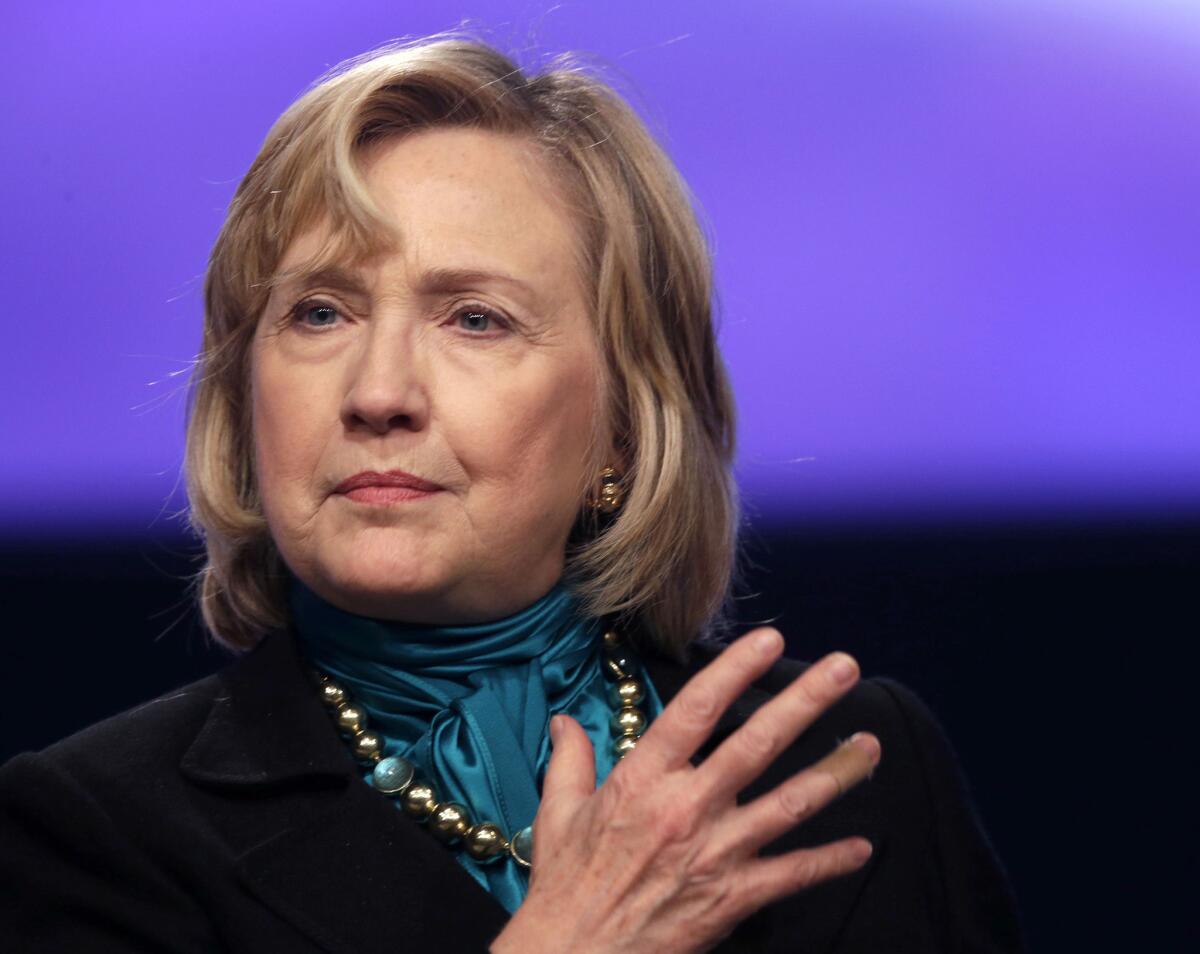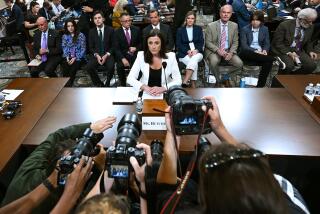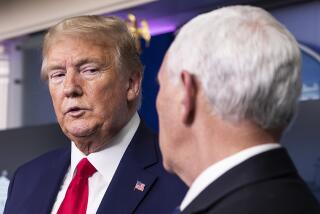Aides to Hillary Clinton in 1993: No lunch, and show ‘driving determination’

- Share via
Hillary Clinton’s ambitious endeavor to reform the healthcare system in 1993 required some bare-knuckled politics, and aides to the former first lady were blunt about the political stagecraft required to get things done as they guided her through the early months of the effort.
“The primary goal” of a two-day healthcare hearing in March of 1993 would be “to inoculate ourselves from charges that we are refusing to listen to all those groups out there that want input,” aides Alexis Herman and Mike Lux told Clinton in a memo. The communique was included among thousands of pages of new documents released by The Clinton Library and the National Archives on Friday.
Optics were critical. The hearing should be “two long days” starting at 8 a.m. and ending at 8 p.m., aides told Clinton. There was to be no lunch break either day: “We want to give the impression of driving determination to hear everyone out. You, Mrs. Gore, or a cabinet secretary should be there at all times with multiple people listening as much as is possible,” Herman and Lux wrote in the Feb. 10 memo to Clinton. The document was withheld from earlier disclosure under the Presidential Records Act because it contained confidential advice.
“Even though our primary goal is political inoculation, we should not lose the opportunity for some public education,” they told Clinton, whose healthcare effort ultimately failed. “Some testifiers should be average people with horror stories, middle class families worried about the future, and senior citizens. These average people should testify during those periods when we believe more people will be watching.”
For maximum effect, the aides argued, Clinton’s remarks should be paired at the start and end of the hearing with real people’s stories. At the same time, they stressed the importance of making time for “relatively minor players” who weren’t needed in larger panels but deserved “a say.”
Consistent with the first batch of archived documents released two weeks ago, memos released Friday show Clinton’s attention to preparing for her meetings on Capitol Hill and how she and her staff studied the records of key lawmakers as she sought to manage competing egos and win legislators over.
In an extensive briefing memo on then-Rep. Pete Stark (D-Calif.), Clinton aide Chris Jennings noted that Stark could be “extremely difficult” but would play a pivotal role: “It is therefore imperative,” Jennings wrote, “that we maintain as close and constructive a relationship with him as is possible.”
Introducing California Rep. Henry Waxman as the other “nuts and bolts” healthcare subcommittee chairman, Jennings noted that he was a strong advocate for his point of view but had “a better concept of where to draw the lines and a greater willingness to negotiate.”
“If handled right,” Jennings told Clinton, “Chairman Waxman can be counted on to be a strong ally for us on Capitol Hill.”
Twitter: @MaeveReston
More to Read
Sign up for Essential California
The most important California stories and recommendations in your inbox every morning.
You may occasionally receive promotional content from the Los Angeles Times.












